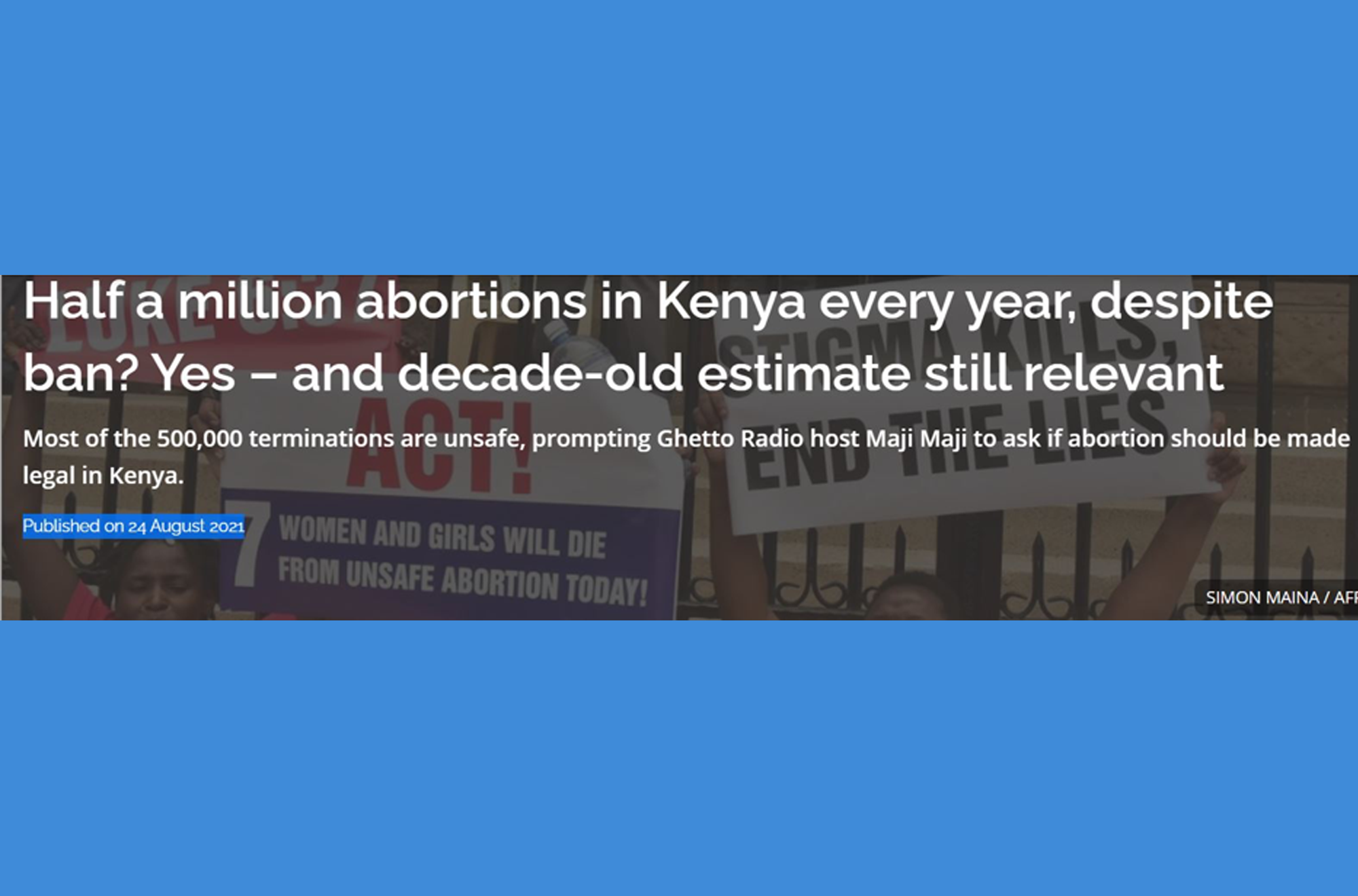
On 24 August 2021, a fact-checking article on unsafe abortions in Kenya, by journalist Makinia Juma Sylvia, was published. She is a member of a web-based group of journalists called Africa Check, whose work is to fact-check a wide range of published information, and publish their own findings on whether it is accurate or not. They include South African, Kenyan, Senegalese and Nigerian journalists, plus a large project team and board members.
The article is entitled “Half a million abortions in Kenya every year, despite ban? Yes – and decade-old estimate still relevant”.
The article concludes: “Most of the 500,000 terminations are unsafe, prompting Ghetto Radio host Maji Maji to ask if abortion should be made legal in Kenya”.
But they did much more than just publish an article. The data they quoted was collected by the African Population and Health Research Centre, an NGO working for SRHR. They quoted Dr Caroline Kabiru, one of APHRC’s senior researchers, on the fact that “abortions may be under-reported by health facilities. And many women and girls who have abortions without serious complications may never go to a facility.” And they quoted others on why unsafe abortion is so common – and life-threatening.
They also involved the Kenyan radio celebrity, Julius Owino, known as Maji Maji, who started off a discussion about abortion in Kenya on the radio station Ghetto Radio, and spoke about the fact of half a million unsafe abortions in Kenya every year. He asked whether abortion should be legalised so as to stop unsafe abortions from happening. Ghetto Radio is particularly popular among young people.
The article discusses various published data on the topic and why some of it has “shortcomings”. They show that it’s not easy to collect nationally accurate statistics on abortion in a situation of clandestine and illegal abortion, and they call for funding to support new research to update the existing data, which are from 2012 and were published by APHRC in 2013.
SOURCE: Africa Check, by Makinia Juma Sylvia, 24 August 2021



